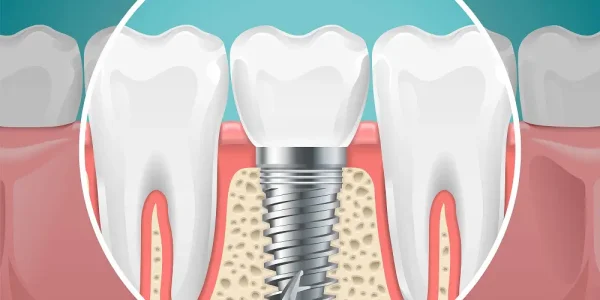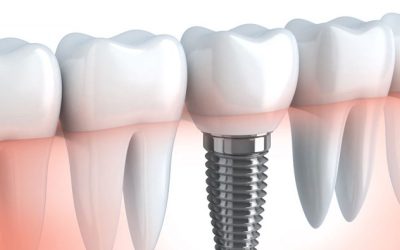
Introduction to Dental Implants
Maintaining good oral health is essential for overall well-being. Our teeth play a crucial role in our daily lives, from chewing food to enhancing our smile. However, various factors can lead to tooth loss, such as decay, trauma, or ageing. Thankfully, with advancements in dentistry, there are now effective solutions to replace missing teeth. One such solution that has gained immense popularity over the years is dental implants.
Understanding the Importance of Oral Health
Before delving into the advantages of dental implants, it’s vital to understand the significance of oral health. Our mouth is a gateway to our overall health and neglecting it can have serious consequences. Poor oral hygiene can lead to various oral diseases, including gum infections, tooth decay, and even tooth loss. Additionally, research has shown a link between oral health and systemic conditions like diabetes and cardiovascular disease. Therefore, taking care of our teeth and gums is of utmost importance.

What are Dental Implants?
What are Dental Implants? Dental implants are artificial tooth roots that are surgically placed into the jawbone to support replacement teeth or bridges. They are usually made of titanium, a biocompatible material that integrates with the bone over time. This integration, known as osseointegration, provides a stable foundation for the replacement teeth. Dental implants can be used to replace a single tooth, multiple teeth, or even a full set of teeth.

The Process of Getting Dental Veneers
Dental implants offer several advantages over other tooth replacement options, making them the preferred choice for many individuals. Firstly, they provide a permanent solution to missing teeth. Unlike dentures or bridges, which may need to be replaced or adjusted over time, dental implants can last a lifetime with proper care. Additionally, dental implants look, feel, and function like natural teeth, giving individuals the confidence to smile, speak, and eat without any concerns.
Furthermore, dental implants preserve the integrity of the jawbone. When a tooth is lost, the surrounding bone begins to deteriorate due to lack of stimulation. However, dental implants stimulate the bone, preventing bone loss and preserving the facial structure. This is not possible with other tooth replacement options like dentures or bridges, which sit on top of the gums and do not provide the same level of stimulation

The Dental Implant Process, From Consultation to Restoration
The journey towards dental implants begins with a consultation with a dental professional. During this initial visit, the dentist will assess the patient’s oral health, take X-rays, and discuss the treatment plan. If dental implants are deemed suitable, the next step involves the surgical placement of the implant into the jawbone. This is done under local anaesthesia to ensure a comfortable experience for the patient.
After the implant has been placed, a healing period of several months is required for osseointegration to occur. During this time, the implant fuses with the jawbone, forming a strong and stable anchor. Once the implant has successfully integrated, an abutment is attached to it, which acts as a connector between the implant and the replacement tooth. Finally, a custom-made crown, bridge, or denture is placed on top of the abutment, completing the restoration process

Dental Implant Success Rates and Longevity
One of the key factors that contribute to the popularity of dental implants is their high success rates. According to studies, dental implant success rates range from 95% to 98%, making them a reliable and predictable treatment option. The longevity of dental implants is also impressive, with many implants lasting for decades or even a lifetime. This is significantly longer than other tooth replacement options, which may require replacement every few years.
Factors to Consider When Deciding on Dental Implants
While dental implants offer numerous advantages, it is essential to consider certain factors before deciding on this treatment option. Firstly, the overall health of the individual plays a crucial role in the success of dental implants. Conditions such as uncontrolled diabetes or smoking can hinder the healing process and increase the risk of implant failure. Therefore, it is important to consult with a dental professional to assess whether dental implants are the right choice for you.
Financial considerations are also important when deciding on dental implants. The cost of dental implants can vary depending on factors such as the number of implants required, the location of the dental practice, and any additional procedures needed. It is advisable to discuss the financial aspect with your dentist and explore any available dental insurance coverage or flexible payment options.
Maintaining Oral Health with Dental Implants
After the dental implant procedure, it is essential to maintain proper oral hygiene to ensure the longevity and success of the implants. Regular brushing and flossing are crucial to keep the implant and surrounding gums clean and free from plaque buildup. It is also important to attend regular dental check-ups and cleanings to monitor the health of the implants and address any issues promptly.
Avoiding habits that can damage the implants, such as biting on hard objects or using the teeth as tools, is crucial. Additionally, quitting smoking and reducing alcohol consumption can significantly improve the success and longevity of dental implants. Following these guidelines and maintaining a healthy lifestyle will contribute to the overall well-being of the implants and the oral health of the individual.
Conclusion
Why Dental Implants are the Ultimate Solution for Missing Teeth Dental implants have revolutionized the field of dentistry by providing a long-lasting and naturallooking solution for missing teeth. Their numerous advantages, such as permanence, functionality, and preservation of the jawbone, make them the ultimate choice for individuals seeking to restore their smile and oral health. By understanding the importance of oral health, consulting with a dental professional, and maintaining proper oral hygiene, individuals can enjoy the benefits of dental implants for a lifetime.
Dental implants are the ultimate solution for missing teeth, offering numerous advantages over other tooth replacement options. This comprehensive guide explores the importance of oral health, the process of dental implants, their success rates, and factors to consider when deciding on this treatment option. Additionally, it provides insights on maintaining oral health with dental implants and concludes by highlighting why they are the preferred choice for individuals seeking a permanent and natural-looking solution. With dental implants, you can regain your smile, confidence, and overall well-being.